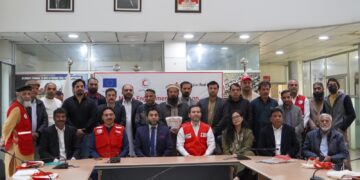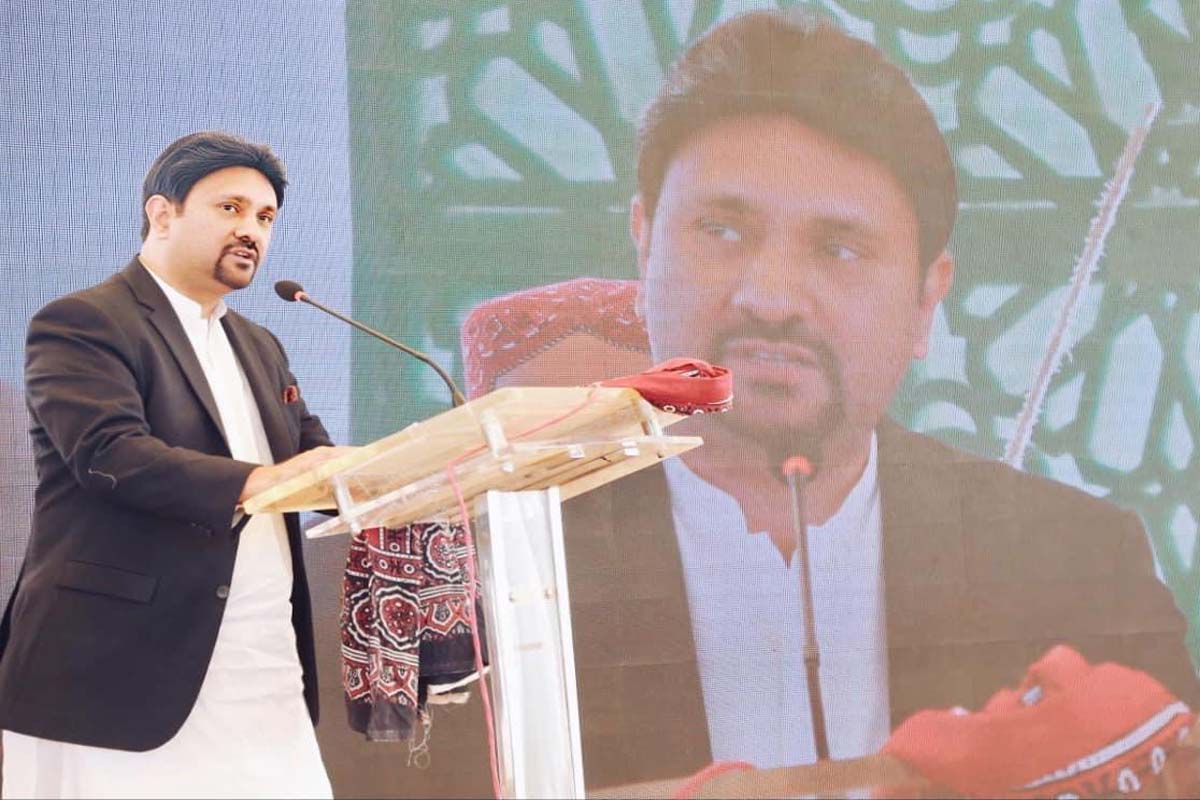This couplet, with its explicitness and simplicity, is known to all of us and is too inspirational. In this couplet of his verse, Allama Iqbal, Pakistan’s national poet, eyes with high hopes for the future and emancipation. This hope and look is a product of his wider vision and his deep understanding of the sublime teachings of Islam which make way for the deliverance of humans from chains of bondage and oppression. Allama Iqbal, who feels pains on the exploitation of the deprived nations of the world and their backwardness, particularly the Muslims, knew that return to the true Islam based on reasoning is the only path to deliverance and so he always invited Muslims to return to their own selves and their true religious identity. Iqbal tried to teach Muslims self-confidence, self-reliance, knowing reality, and steadfastness. He wanted a society that knows its internal force and, depending upon that, breaks the shackles.
Imam Khomeini, the architect of the Islamic revolution of Iran, whose 32nd death anniversary falls on 4th June, with the idea of returning to oneself and one’s true Islamic identity, launched a great movement against the colonial rule and its tyranny in Iran. Imam Khomeini, in the words of the Leader of the Islamic Revolution, Hazrat Ayatollah Khamenie, was the Iman of Change who awakened the hidden nature and spiritual instincts of humans. By drawing the people towards the forgotten parts of the Islamic school, stressing the need of wiping off ambiguities from religious teachings, and correcting the incorrect understandings of religions, instilled a new spirit in the society and mobilized the people for the revival of Islamic values and standing against oppression. Imam Khomeini says, “Unless we return to Islam, the Islam of the Rasool Allah (SA), our difficulties are here to stay”.
In his motion for bringing a change, the Founder of the Islamic Revolution of Iran not only addressed the issue of the revival of religious thinkings and regaining the Islamic identity but also led reformation at political and social levels and put idealism into actual practice. The comprehensive and dynamic perception of Imam Khomeini brought about one of the biggest changes in the geography of Iran and the region over the final decades of the 20th century. Drawing inspiration from the true Quranic truths and those of the Islam-e-Mohammadi, the Iranian revolution promoted its ideals like the fight against all kinds of oppression against itself or others, justice, support to the deprived nations, particularly the oppressed people of Palestine, Islamic unity, and self-reliance and showed that the religion can play a rule at individual and social levels. It also can bring happiness and prosperity for an individual or a society by bringing a change in their thinking and practices. In Ayah 11, Surah Raad, Allah says: “Allah does not change the fate of any people (and nation) unless they change themselves”.
The movement of Imam Khomeini for revival and change, while focusing on bringing a change in an individual and society on the basis of religious teachings, also took into consideration the barriers and challenges faced by it. In the eyes of Imam Khomeini, division and discord in the Islamic ummah are one of the reasons behind the backwardness of Muslims and their weaknesses against the hegemonist powers. By identifying the fallouts and consequences of the division and discord existing in the Islamic society, and also the role played or being played by the imperialism in this regard before or after the Islamic revolution in Iran, he proved to be the harbinger of unity in the Islamic world. He believed that the only way for overcoming the difficulties caused by the division among the Muslim nations, bringing the Islamic world out of the backwardness imposed on it, and fighting out the conspiracies of the imperialist powers is bringing about unity and brotherhood in the Muslim world.
While Imam Khomeini’s insistence on unity in the Islamic world was based on Islamic teachings, it was also an outcome of his practical experience in the social and political fields and his deep understanding of the hardships and damages caused by the division in the Islamic world. To Imam Khomeini, unifications in belief and world were the basis of unity, and he used to say: “One of the biggest aims of the religious precepts and the great prophets was the unification of word and unification of belief”.
A unified vision has a unification of word, belief, and perception, and being obliged to it brings about growth, progress, advancements, and prosperity for the Islamic ummah. The experience of the man of the highest-ranking in Islam shows that a unified vision and act and the Islamic brotherhood have played an effective role in the progress of Islamic society and its geographical development.
During his various speeches, Imam Khomeini, in the theoretical realm, gave a detailed briefing on the Islamic unity based on the unification of belief and word, stressed upon the need of keeping hold of the Divine string in the light of the Ayah 103, Surah Al-e Imran, and on what that is in the best interest of the Islamic ummah. Defending Islam and the Islamic countries, respect and honor of the Muslims, and sovereignty of the Islamic countries were some of the topics which were highlighted as one of the bases of the Islamic unity by Imam Khomeini during his speeches.
He says: “We, under any circumstances, are ready to defend Islam, Islamic countries, and the sovereignty of the Islamic nations. Our program is the program of Islam, the unity of the word of Muslims, the unity among the Islamic countries, the brotherhood with the Muslims all over”.
For fulfillment of his desire for Islamic unity and honor and prosperity of the Muslims, Imam Khomeini also tried throughout his prolific political life to create new opportunities for motivating the Islam ummah, by utilizing the existing potentials. In fact, besides the realm of theory, the realm of practical application also drew his attention to Islamic unity. The issue of Palestine had been one of the main apprehensions and concerns of Imam Khomeini during the pre-and post-revolution periods So, he always stressed the need for the liberation of Palestine and warned against the danger and threat posed by the Qods-occupying regime for the Islamic world. He believed that the Qods can only be liberated through the unity of all Muslims. The issue of the liberation of Palestine and the initiative of Hazrat Imam for marking the last Friday of Ramzan as the Qods Day was a practical strategy for bringing unanimity and unity in the Islamic world. The Global Qods Day plays a determining role in the unity of Islamic nations and mobilization of Muslim forces for the liberation of the Holy Qods. Imam Khomeini says: “Qods Day is the day of Islam. Qods Day is the day when Islam must be revived.”
One of the other areas which drew the attention of Imam Khomeini for creating unity in Islamic ummah was the revival of Haj-e-Ebrahimi and calling upon Muslims to understand the philosophy of Haj, which in the Holy Qoran has been termed as ‘???? ?????’. Coring to Imam Khomeini’s belief, whenever the world congress of Haj, which is the focus of attention of millions of Muslims across the world, regains its real philosophy, it can change into a center for the unity of the Islamic world.
By casting a glance at the theoretical and practical conduct of Imam Khomeini in the realm of Islamic unity after the passage of 32 years after his death, we find that the basis for bringing about this unity is the return to the true Islamic teachings and regaining the Islamic identity. It has been the belief of all of the revivalists of the religion of the contemporary period including Allama Iqbal.


Acting Consul General
Islamic Republic of Iran




















